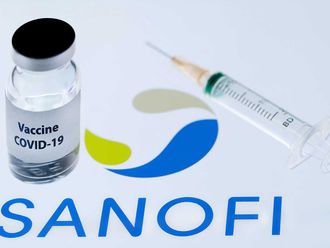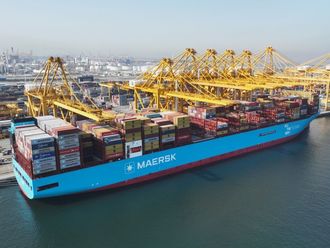Dubai: Dubai’s gold and jewellery trade sources the bulk of its needs from bullion banks and the transaction patterns have long since moved away from cash purchases.
“We source bullion from top rated international bullion banks and hence we get advantage in terms of availability, pricing and premium, etc,” said John Paul Joy Alukkas, executive director, Joyalukkas Group. “These banks operate on high governance and hence we have nothing to worry on sourcing.”
Indeed, it is a closed and long-standing arrangement in the dealings between refiners, bullion banks and wholesalers. Some of the major local wholesalers, who also have extensive retail interests, source anywhere over 80 per cent of their needs from bullion banks.
“In our case, that percentage is 90 per cent and the balance comes from buying old gold jewellery from some individual sellers with whom we have had long-term relationships,” said Abdul Salam K.P. of Malabar Gold and Diamonds. “Even the selling and buying of old gold jewellery, we have to abide by local regulations.”
On whether there is an extensive recourse to cash transactions in the local trade, Salam said: “Given the nature of the trade where ties between stakeholders go back over decades and where gold is bought and sold on a daily basis, there was always room for cash based transactions. But with the new requirements of full auditing of supplies, the nature of the business will shift towards bullion banks and institutional purchases.”
The media reports over the Kaloti Jewellery Group also related to some transactions — from its Moroccan clients — made by the entity in cash. To this, Kaloti’s Tarek El Mdaka, managing director, issued this statement: “There is absolutely no evidence that Kaloti falsified any documentation. In its audit report, Ernst & Young (which was doing the auditing the firm) clearly stated that its findings were related to “inadequate documentation in the supply chain”.
“Kaloti had full KYC (know your customer) documentation on all its Moroccan clients and had proper import documentation and invoices stating that this particular consignment was gold from Morocco.
“Kaloti accepted it had a shortcoming in the initial audit, quickly remediated it, and is now fully compliant.”
It was early last year that E & Y was engaged to review the supply-chain compliance practices by Kaloti. “As a result of this process, EY Dubai identified some instances of non-compliance with the rules established by the relevant regulator (the Dubai Multi Commodities Centre or DMCC),” E & Y said in its statement.
“It was the work of EY Dubai that first brought to light that there was non-compliance with the applicable regulations. The instances of non-compliance we found were fully reported by EY Dubai to the client and separately to the regulator.
“The client implemented a corrective action plan.”












